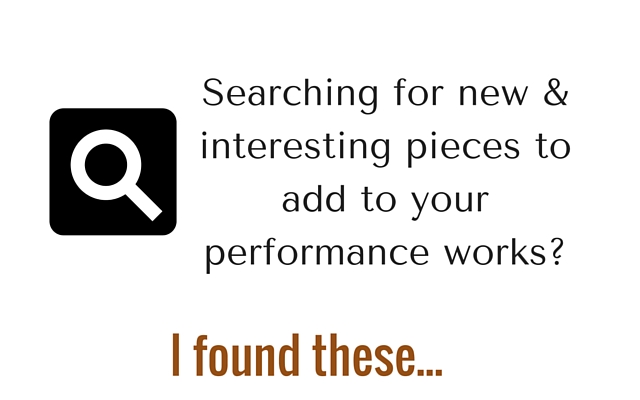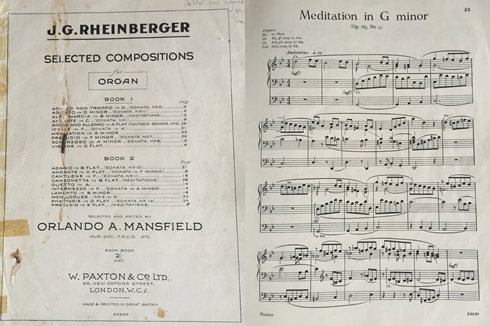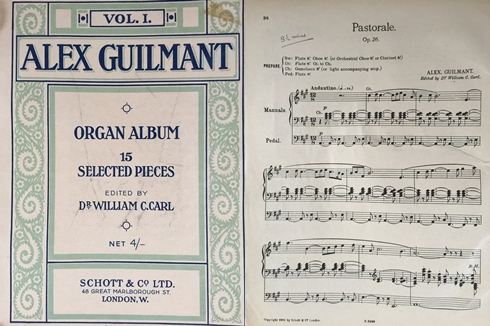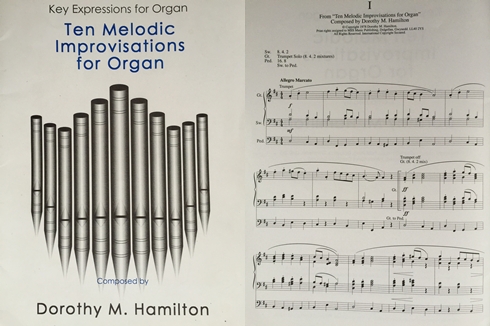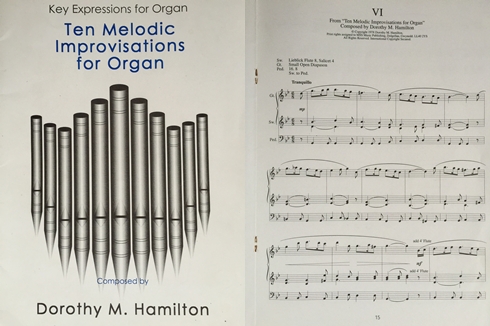Are you an organist in search of new and interesting pieces to add to your services and performance works? You’re not alone. I share some of the music I’ve found to be less demanding and delightful to play…
I imagine most organists that fall into my proficiency bracket (reluctantly, I know my place) suffer the same frustration as me – a lot of the really interesting repertoire falls irritatingly beyond my ability to play in public. Finding lively or well-crafted pieces is difficult, as the easier ones don’t tend to be broadcast or recorded.
A tricky business
I long to play the Boellmann or Widor Toccatas, but I know maintaining the very steady rhythmic discipline in the arpeggio sections – even if I could get most of the notes right – is a bridge too far. Sadly, credible performances of many of these pieces demand far more rhythmic skill and stamina than note accuracy, and choosing worthy pieces avoiding this is, well, incredibly hard.
Over the years, I’ve spent hundreds of pounds, usually in Blackwell’s Music shop in Oxford, selecting music that looks within my range only to find the pitfalls that eliminate it from ever being of service performance use once I’m at the keyboard! One day, my extensive library of manuscripts will no doubt pass into more skilled hands than mine, but for the time being it grows and only about 10% is of regular use.
It’s good to share
I’m on a mission to share some of the music that’s delightful to play, doesn’t demand too much practice and isn’t too difficult to sight-read and does not require a great number of stops to give a good intrpretation. Much of it has been discovered in the wonderful ‘used scores’ boxes often found in rural bookshops – no doubt sourced from house clearances. I’ve found lovely music from little known and obscure composers, as well as charming and easier-to-play music from many celebrated for their blockbuster compositions.
In this blog, I’d like to bring some pieces to your attention – the renowned Guilmant and Rheinberger, along with a collection of short pieces by Dorothy M Hamilton, unknown to me until I found the edition in a second-hand sale. She was born in 1917 and played in Scotland and that’s about as much as the internet has documented about her career.
I recommend…
Rheinberger organ sonatas are, to my mind, worthy runner-up material to the organ symphonies of Widor. If you explore the Rheinberger’s quieter movements there is melody of near equal charm and written with a far less demanding technique to execute. There are a wealth of other short slow movements that have interesting harmonic construction, with simple modulations that move about related keys without ever demanding playing in 5 flats or 6 sharps. One such is the ‘G Minor Meditation Op167 No4’ included in the collection I found published by Paxton & Co, long since defunct but most likely available in a newer edition. It’s a very tranquil but interesting piece that never dips into the dull zone, which less skilled organ composers all too often take us to. Here is my You Tube performance.
Guilmant is an established master with prodigious output, much of which is accessible to the weekend organist. One of the benefits of being in the organ business is that quite often we’re given music by families when the organist becomes too old to play or has died and there’s no obvious family member to inherit it. We try to pass it on to good homes and occasionally add it to our own showroom collection. One such book that caught my attention some months ago was a Schott edition (Vol 1) of 15 selected pieces – price 4 shillings and copyrighted in 1915. Schott is still trading from the same premises at 48 Great Marlborough St in London today. Isn’t that an achievement? Unusually for me, it was the Opus 26 Pastorale that stood out. Partly as it had a demanding rhythmic left hand to keep going, but with block chords rather than those relentless arpeggios that I so want to master, but fall shy of the challenge. Also it is ‘andantino’ so it never requires the speed of the flash toccatas. The whole book is an almost totally playable delight, but the pastorale has a truly lyrical melody that can easily be memorised when concentrating on the more demanding left hand, especially where some of the chord changes move a little awkwardly up and down the keyboard. Here is my You Tube performance.
Finally, to Dorothy Hamilton and apart from these 10 pieces, I know of no more, but would be grateful if anyone has others they can share. Published by MSS Music of Dolgellau – also still trading but now better known as KeyKings – this is simple but elegant writing that’s very easily sight-read. Hamilton was born in 1917 and published in 1978, so perhaps set the composition period between the wars, but maybe someone reading this can throw some light on this theory? We all get asked for the inevitable trumpet tune at weddings and no doubt roll out Stanley and Purcell as old favourites. I very much admire the trumpet tunes of Johnson, but they’re nearly all just that bit tricky in rhythm or key modulation and usually both! Hamilton writes a very refreshing, but simple tune that recalls Johnson’s innovation without the complexity and I commend it to any weekend organist as a great addition to their wedding library. I also include a reflective piece I used a week ago during communion and was immediately asked about the composer, so it must have done its job for that section of the service very well indeed. Requests from my congregation are few and far between.
I have recorded my rather mediocre playing of these pieces (on iPad in case you’re interested) so you can hear first hand what appeals to me about this bit of repertoire. Please excuse the wrong notes! Here is the Trumpet Tune and the quieter Variation VI
The aim of this post is to get a forum discussion going in the hope of unearthing some worthy repertoire for us village organists with little time to practice, but wanting to contribute a variety of quality music into the liturgy – without falling back too often on the old faithful manuscripts that sit by the organ bench or the back seats of our cars! To join the forum and contribute follow THIS LINK
I have had a passion for church organs since the tender age of 12. I own and run Viscount Organs with a close attention to the detail that musicians appreciate; and a clear understanding of the benefits of digital technology and keeping to the traditional and emotional elements of organ playing.
